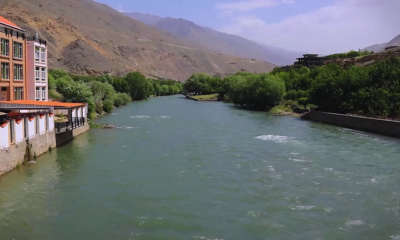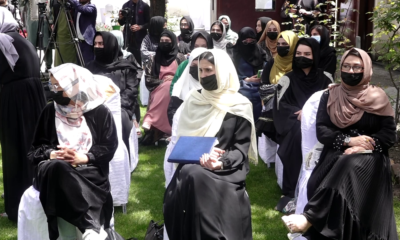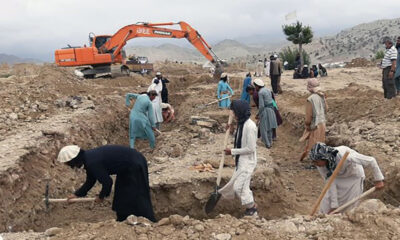Latest News
Iran’s Zarif says Taliban has to change based on democratic ways
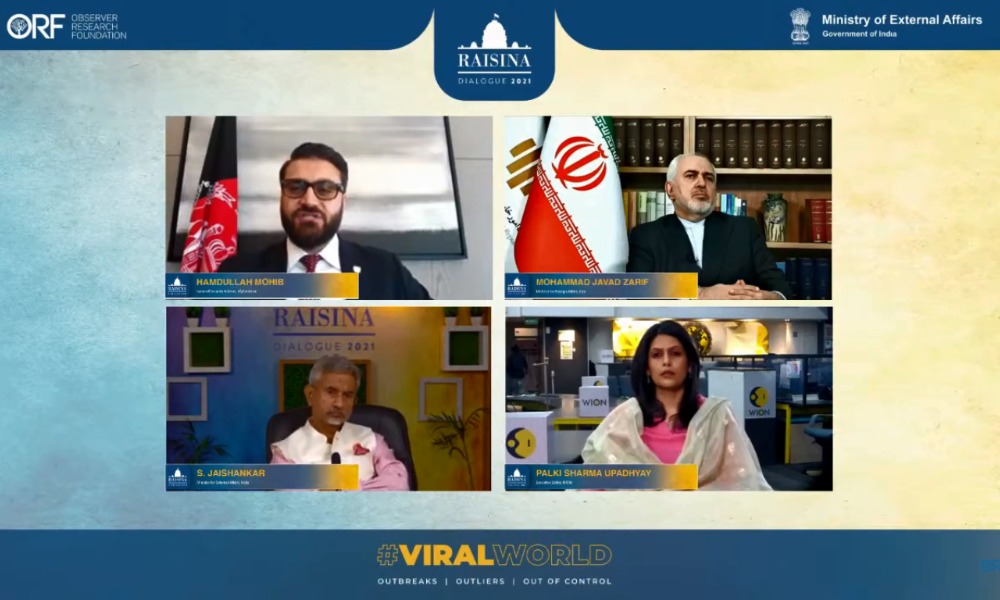
Iran’s Foreign Minister Mohammad Javad Zarif said Friday that the Taliban has to “change based on democratic ways.”
Addressing Raisina 2021 conference virtually, Zarif stated: “If they (Taliban) want to go back to their 90s ideology, it will be impossible, as there is a new and different Afghanistan today.”
Zarif’s remarks come a day after US President Joe Biden and NATO Secretary-General Jens Stoltenberg announced a full withdrawal of all foreign troops starting May 1.
According to them, all troops will be out of Afghanistan by September 11 – the 20th anniversary of the 9/11 attack on the United States.
Zarif stated that the US withdrawal from Afghanistan is a positive move. He also called on the Taliban to reduce violence as the US prepares to leave Afghanistan.
“The Taliban should not use this opportunity to increase their violence. They should understand that the people of Afghanistan have had enough violence,” Zarif said.
“It is important for all Afghans to agree on what they want and then work on the details on how to create it. Regional countries should help Afghanistan create that picture, a democratic government, balanced ethnic representation, and a strong economy,” he added.
“The role of Civil Society in Afghanistan today is not comparable to 2001 or the 1990s. While there are problems that remain in the country, we need to preserve what has been achieved in Afghanistan and ensure its continuity,” Zarif noted.
Meanwhile, Afghanistan National Security Adviser (NSA) Hamdullah Mohib at the event stated: “Everyone can be represented in the democratic republic of Afghanistan. The Taliban cannot believe that they will be able to force themselves on the people,” Mohib said.
He stated that democracy is what brings Afghans all together and provides an opportunity for a pluralistic society to function.
“The peace process must include all the different groups of the Taliban. No group or faction should or can be excluded,” Mohib said.
Referring to the US and NATO’s decision for a full withdrawal from Afghanistan, Mohib stated that the Afghan security forces are capable to defend their countries.
He said Biden’s withdrawal plan is a great opportunity for the Afghans to take control of the security situation in the country.
“Afghanistan does not need US combat troops on the ground, it needs support for its armed forces,” Mohib said.
“The Taliban had a great opportunity after the Doha agreement to be more tolerant and take it as an opportunity to lead their group forward. However, they began a narrative of victory, which was false and arrogant,” Mohib stated.
“It’s time for the Taliban to make peace with the Afghan government and become part of the mainstream Afghan society.”
Indian External Affairs Minister S. Jaishankar said the Afghan peace process must be Afghan-led and owned.
“This means that the outcome of the process should be in the collective interests of the Afghan people,” Jaishankar said.
“We will do whatever is in our power and interests by working with our neighbors to ensure that Afghanistan’s interests are protected,” he added.
“Afghanistan needs a double peace – peace within the country and peace around the country. Afghanistan’s neighbors must contribute towards this Raisina 2021,” the Indian diplomat said.
Latest News
Panjshir to Kabul water conduit project ‘waiting for budget approval’
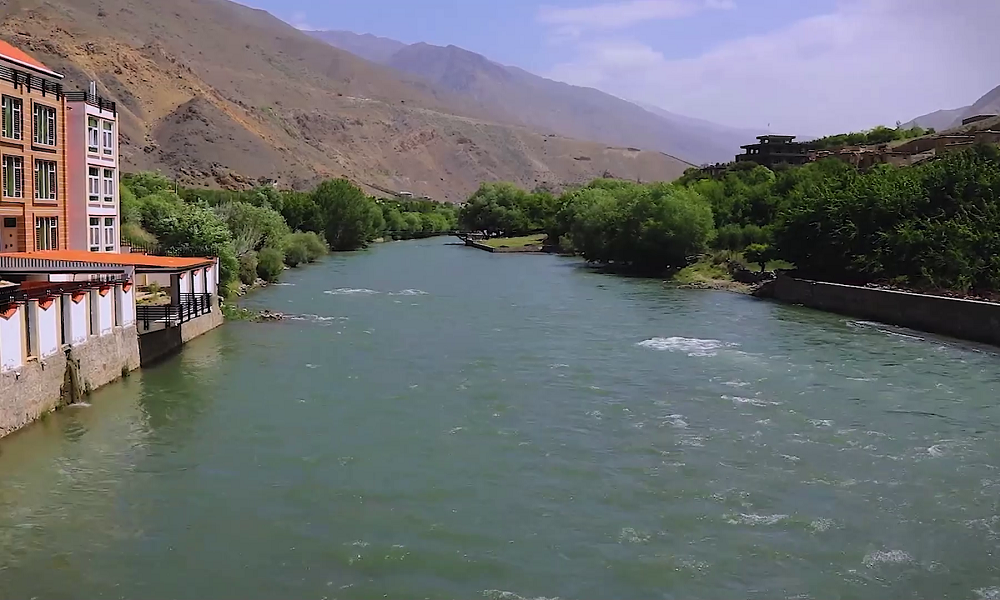
Afghanistan’s Ministry of Energy and Water is waiting for budget approval on the much-needed Panjshir to Kabul water conduit project – which, once completed, will alleviate the severe water shortage crisis in the capital.
Matiullah Abid, spokesperson for the Ministry of Energy and Water, confirmed the initial phase of reviewing and planning of the project is complete and construction work will start as soon as the budget has been approved.
Abid said the aim of the project is to help reduce water shortage issues in Kabul..
“The survey, design, and technical studies of the Panjshir water transfer project have been completed by the Ministry of Energy and Water, and the project [budget] has been sent to the leadership of the Islamic Emirate for approval,” he said.
“This project will commence once it is approved and the budget is available.”
The water conduit project will cover a distance of over 200 kms starting in Bazarak in Panjshir and ending in Tarakhail in Kabul.
Residents of Kabul have welcomed the plan and said once complete the additional water will help alleviate the drinking water crisis.
Experts meanwhile believe that this project could help Kabul’s groundwater levels to improve.
“I believe that the Panjshir water transfer project will help replenish underground water sources once again, and the people will have access to clean and healthy water. Additionally, with the transfer of Panjshir water, the agricultural lands around Kabul will also be managed with water, which, in turn, will create job opportunities for the people,” said Abdul Nasir Reshtia, an economic expert.
The plan to transfer water from the Panjshir River to Kabul was designed in 2012. In the 2020 budget of under the previous government, around $5 million was allocated for the annual transfer of 100 million cubic meters of Panjshir River water to Kabul.
The project was expected to be completed by 2023 but never got off the ground until the Islamic Emirate takeover.
Latest News
Female journalists complain about lack of access to accurate and timely information
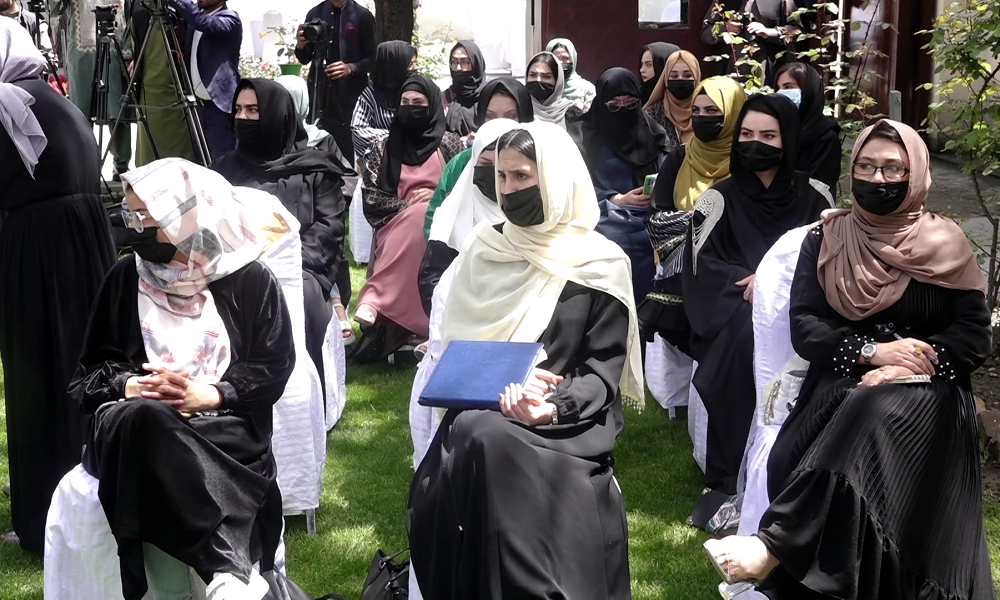
A number of female journalists say the lack of access to accurate and timely information leads to numerous challenges in their course of work.
According to some of these journalists, certain officials of the Islamic Emirate often refuse to provide information to female journalists, which creates a significant obstacle in fulfilling their professional duties.
One female journalist said: “Unfortunately, we have been subjected to intimidation by some institutions and media outlets, which hinders our work. In this regard, we urge our own media and various institutions to support female journalists the same way they support male journalists, and to allow us to continue our work.”
It is also reported that cultural and social restrictions make it difficult for female journalists to carry out their activities.
Female journalists have added that their exclusion from the media not only weakens freedom of speech but also deprives society of the perspectives and experiences of half of its population.
However, some media support organizations emphasize that the working conditions for female journalists have improved compared to last year, and currently, 745 female journalists are working in various media outlets across the country.
“The number of female journalists has increased compared to last year. Currently, 745 female journalists are working in the media. Last year, the number was 601,” said Hujjatullah Mujaddidi, head of the Afghanistan Independent Journalists Union.
Meanwhile, the Ministry of Information and Culture has stressed that the current media situation is favorable, and the ministry is committed to supporting journalists and media outlets in various sectors.
Since the IEA’s takeover in August 2021, many female journalists have lost their jobs, and some have been forced to leave the country.
Latest News
Pakistan ‘extends’ deadline for a week for Afghans to leave the country

The Pakistan government has pushed out the deadline to next week for hundreds of thousands of Afghan refugees to return to their country due to Eid al-Fitr.
AFP reported that a government official said on condition of anonymity that “the deadline has been extended until the beginning of next week due to Eid holidays.”
In early March, Islamabad announced a March 31 deadline for Afghans holding certain documentation to leave the country.
Afghans holding Afghan Citizen Cards (ACC) — issued by Pakistan authorities and held by 800,000 people, according to the United Nations — face deportation to Afghanistan after the deadline.
More than 1.3 million Afghans who hold Proof of Registration (PoR) cards from the UN refugee agency, UNHCR, are also to be moved outside the capital Islamabad and neighbouring city Rawalpindi.
On Friday, Pakistan’s Federal Interior Minister Mohsin Naqv chaired a high-level meeting to review the repatriation process of ACC holders.
He stated that continuous coordination is being maintained between the federal and provincial governments regarding the repatriation process, and the federal government will provide full support to the provinces.
Additionally, a committee has been formed based on the recommendations of the Chief Minister of Khyber Pakhtunkhwa, he said.
Naqvi also stated that Pakistan’s Minister of State for Interior Tallal Chaudhry will visit the provinces to resolve any issues arising during the repatriation process.
In addition, all arrangements for the repatriation of Afghan Citizen Card holders have been completed, Naqvi said, adding that a door-to-door awareness campaign is underway, and the mapping of Afghan Citizen Card holders has been finalized.
Holding centers, food provisions, and healthcare facilities have also been arranged for those returning, he said.
-

 Latest News5 days ago
Latest News5 days agoMore than 70,000 Afghans returned home in third week of March: IOM
-

 Health4 days ago
Health4 days agoGlobal organizations warn of health crisis due to aid cuts in Afghanistan
-

 International Sports5 days ago
International Sports5 days agoChennai grapple with IPL home truth after Bengaluru defeat
-

 World5 days ago
World5 days agoMyanmar quake death toll nears 700 as international aid starts to arrive
-

 World3 days ago
World3 days agoMyanmar quake death toll hits 1,700 as aid scramble intensifies
-

 Sport4 days ago
Sport4 days agoIPL 2025: Gujarat Titans beat Mumbai Indians by 36 runs
-

 Latest News2 days ago
Latest News2 days agoSwitzerland re-establishes presence in Kabul with humanitarian office
-
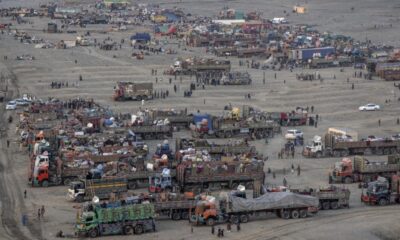
 Latest News3 days ago
Latest News3 days agoPakistan plans to expel 3 million Afghan refugees this year


